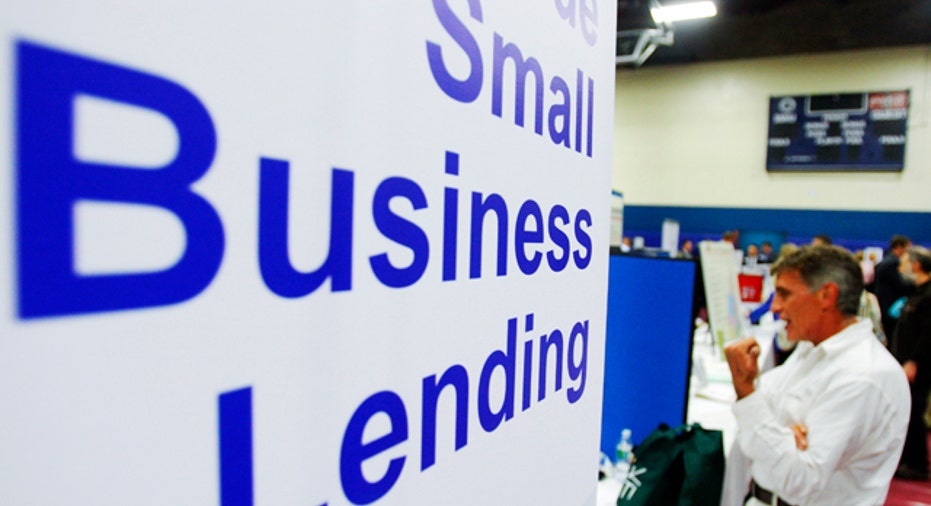Attention! Boot Camp Helps Entrepreneurs Get Fit for Angel Funding

On a recent January morning, 12 people gathered for boot camp in Southern California, but they weren’t there to shed excess holiday weight. If anything, the group was hoping to fatten up.
After being selected through a screening process and paying $495, this group was hungry for knowledge, specifically on how to secure angel capital to fund their businesses.
The Maverick Angels Boot Camp for Entrepreneurs is held monthly by angel investing network Maverick Angels. The entrepreneurs in attendance this day had diverse backgrounds, some just had ideas, like two women hoping to fill a market need with realtor software. Others, like the founder of RxTimer Cap, came armed with fully-manufactured products, a vision, and a pitch.
Bill Barber, president of Maverick Angels, kicked off the day with a little inspiration from Teddy Roosevelt; “Far better is it to dare mighty things, to win glorious triumphs, even though checkered by failure, than to rank with those poor spirits who neither enjoy nor suffer much, because they live in a gray twilight that knows not victory nor defeat.”
To understand how the day would unfold, Barber explained that Maverick employs an “end-to-end investment process.” The boot camp is a stepping-stone for the “Deal Line Up,” an event held a week later that allows entrepreneurs pitch their ideas to the Maverick team.
From a 10-minute pitch and a 10-minute Q&A, the Maverick team determines if a fledgling company is ready to present to a larger group. A “maybe” vote suggests the pitch needs to be more refined or milestones still need to be met, a “no” vote marks the end of the process and a “yes” vote moves the entrepreneur along to the “Maverick Angels Arena.” The Arena meeting is the entrepreneur’s chance to entice a single or multiple investors from a group of 60 to 75 in the audience. It costs $1,000 to present at this event.
“In a 10-minute pitch and Q&A the goal is to get somebody interested enough with what you are doing to have them follow you out the door wanting to know more,” said Barber. If that is indeed the case, the entrepreneur, with the help of a Maverick volunteer, moves on to the due-diligence process of gathering the necessary paperwork to help the angels make an investment decision. Barber said that deals usually take about 90 days to finalize.
But first things first. To get to a finalized deal, entrepreneurs need to understand angel investors’ recipe for funding success. And so, Barber’s presentation proceeded with a slide show and handouts.
The 12 entrepreneurs learned the basics, including the pros and cons of receiving funding from friends and family, private equity, angels, factoring, grants, vendors and customers. They also learned more complex concepts like ROI/exit strategies through asset sales, licensing deals and profit sharing.
While the entrepreneurs munched on sandwiches during lunch, they also indulged in a Q&A session with three tax, patent and trademark, and corporate and transactional law attorneys. The lawyers provided information on litigation prevention for inventors, tax implications for different types of corporations and issues with equity issuance.
After lunch the group learned the value of a strong presentation. Barber outlined his company’s desired 12-slide presentation template, including tips on color choices, use of animation and what to highlight on each slide. He stressed “It’s a sign of respect if you know what slide is coming next and you know where you are going with your presentation.”
Barber also noted that the last slide on a presentation is valuable real estate because it stays up during the Q&A. He suggested entrepreneurs use it to define a need and ask angels for help. This point resonated with Bob Craig, who is looking to raise $500,00 for Ventura, Calif.-based Cooper Labs. “What really struck home with me is that [Maverick Angels] are more than angel investors,’ said Craig, “They are a mentoring group who might have some ideas to help you grow your business beyond lending you money.“
Barber then gave the floor to two entrepreneurs who presented their 10-minute pitch. The audience acted as investors, quizzing the entrepreneurs on their company. Then, along with Barber, they critiqued the presentations.
While time was a constraint, and not every entrepreneur got to present, Barber offered attendees the chance to schedule practice presentations prior to The Deal Line-Up.
Kelly Brodbeck, who raised $125,000 for MyPurMist from Maverick Angels, found the presentation practice to be a good orientation. “It helped my refine my pitch. My message was too complex,” said Brodbeck. But he warned, “It is not foolproof. I remember one person presented and at the end an investor raised his hand and said ‘I just listened to you for half an hour and I have no idea what your company does.’”



















